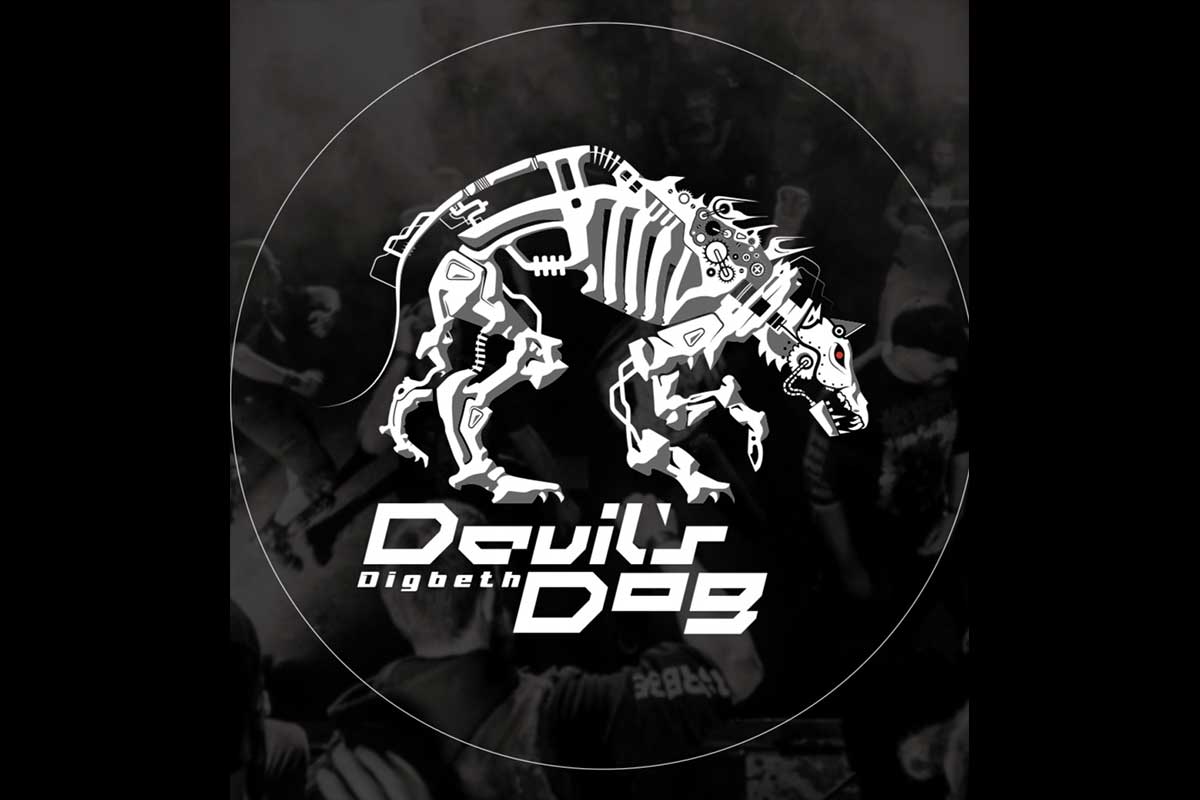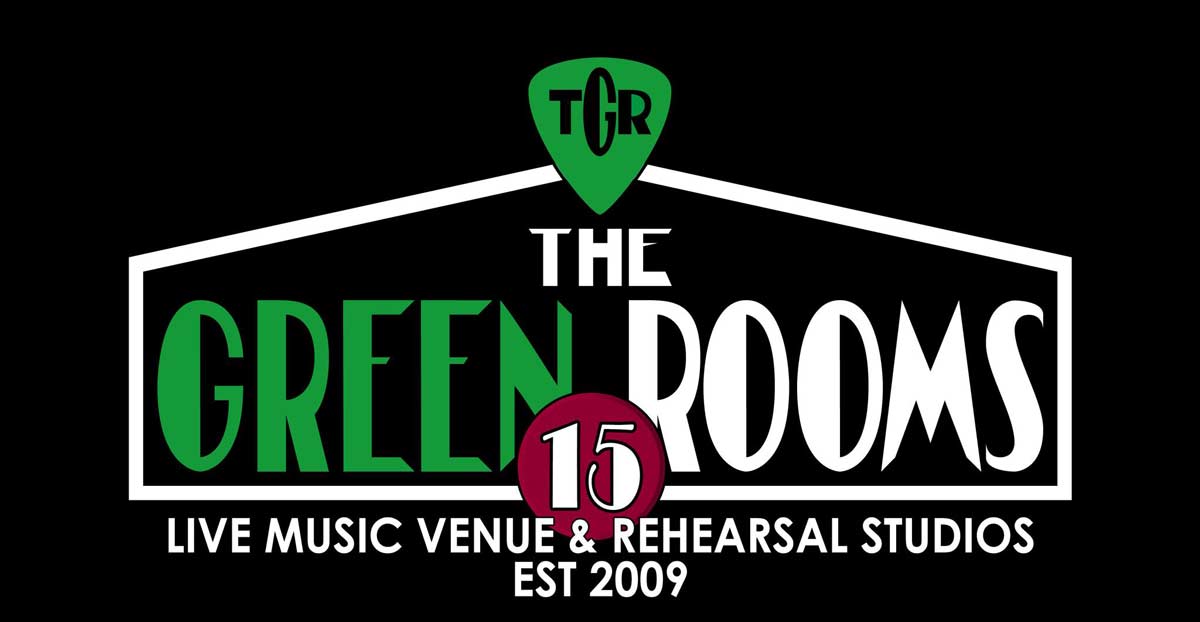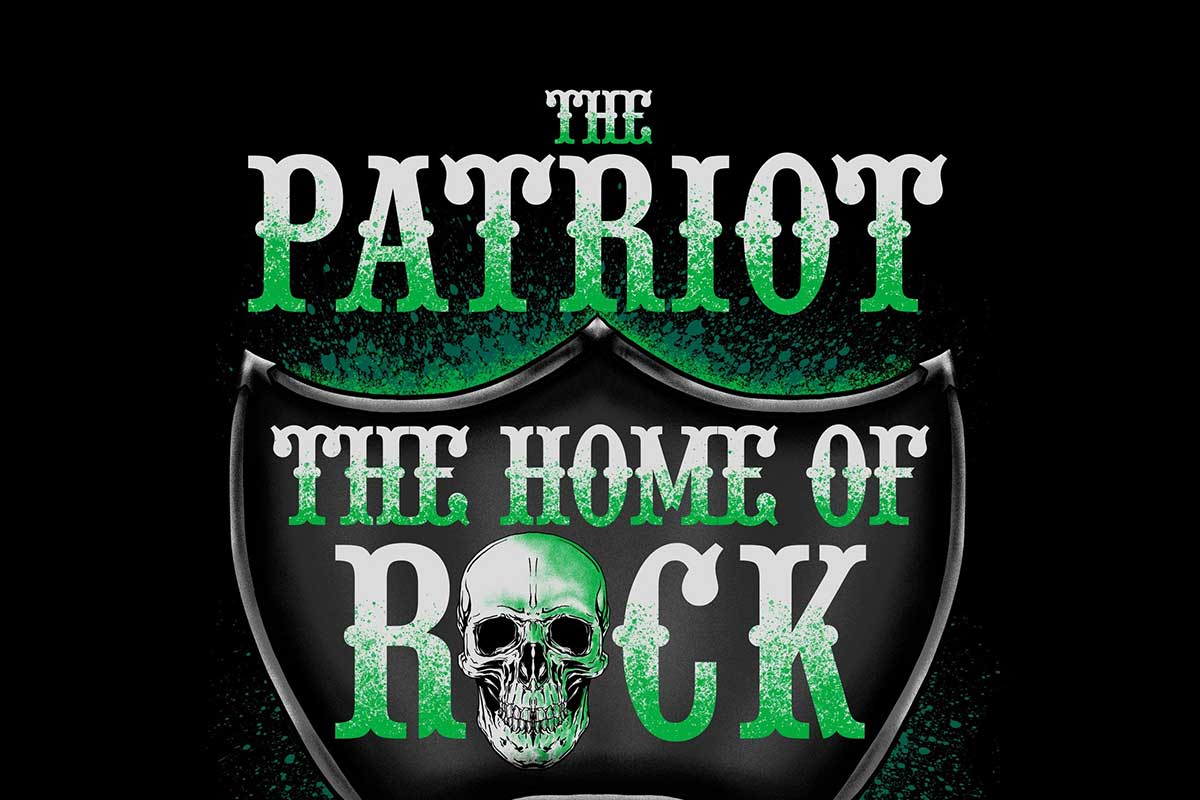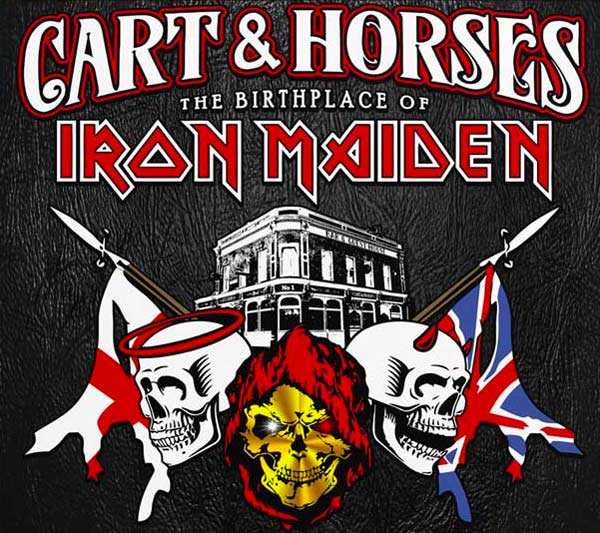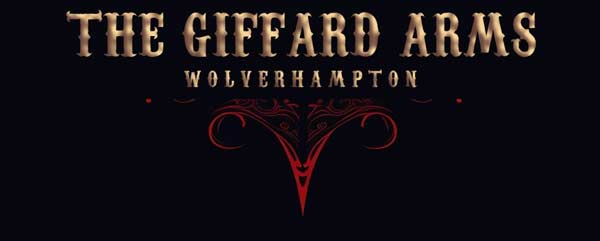Mork are one of Norway’s most highly regarded Black Metal outfits, a status they achieved in less than a decade. They released their sixth full-length Dypet ten days ago, and it is a wonderful icy blast of Black Metal. MetalTalk’s Steve Ritchie battled with Norwegian dialect challenges and spoke with Thomas Eriksen as Mork were preparing for their Rockeklubben, Porsgrunn festival appearance.
Some musicians churn out similar-sounding releases, but the thing that impresses with Mork is their music constantly evolves and changes sound-wise. “That is a result of myself basically leaving behind all traditional Black Metal rules or expectations,” Eriksen says. “That’s basically it. If you listen to my first album and all the way chronologically up to today, you can hear that it’s opening up influence-wise. While the first album is strict Black Metal and primitive, I’m keeping everything within the limits of Black Metal. But over the years, I decided that I want Mork to have its own voice, and I do believe I have made the right choice by doing it this way. It seems like it. The band has longevity, and each release seems to get bigger. It’s been a crazy journey but only over ten years, so it’s been quick as well.”
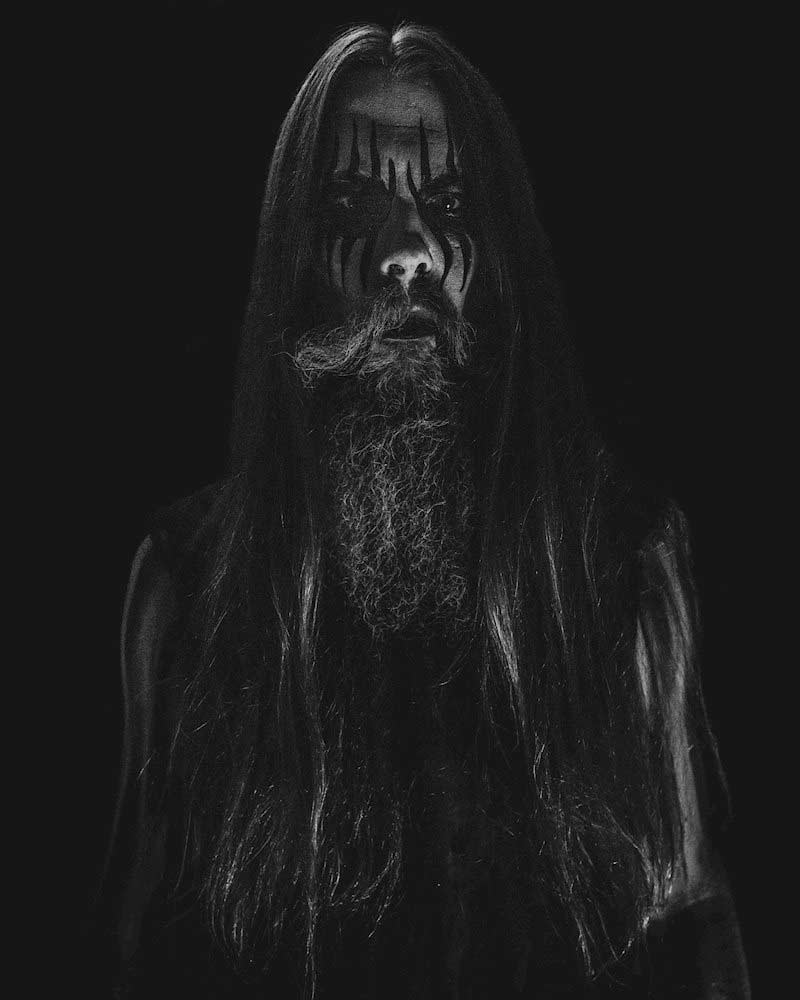
Thomas says that my pronunciation of Dypet is acceptable and points out, with a smile, that he was watching one online review where ‘Diaper’ was the chosen version. “The thing is, it’s all my fault, and I’m the only one to blame,” he says, smiling.
For Dypet, the addition of an analogue synth adds more of a rich, haunting quality. MetalTalk wrote about the “unnerving eeriness and roundness to the still icy mood” of the Mork sound.
“For my podcast, I went to visit Snorre Westvold Ruch, the man behind Thorns, a very creative and legendary Norwegian musician,” Thomas says. “His entire living room space was covered in old analogue synths and cables, and I thought that was kind of interesting. I grew up with old video games, Nintendos and Atari. So the sound has always been with me somehow. But the funny point is that when I came back from that trip, and I continued the production of my album, the day came when I brought it to a different studio to Freddy Holm, a guy who helps me to mix my albums. And just by coincidence, he also had this fascination for analogue synths. At that time, he had a bunch of them, and I was like, let’s just try some stuff here and there. So that is basically what happened.
“It’s all by chance and coincidences. There is not much of it [synth] on the album. If I think it’s perhaps on three tracks. It’s most prominent on the final track [Tilbake Til Opprinnelsen], where it has its own role, its own voice. I must admit I was a bit sceptical because there are a lot of naysayers out there that are scared about people dabbling too much with the Black Metal formula. I think this one just became even deeper in sound and atmosphere. So I’m really happy about it, and it seems like most people have taken a liking also.”
Dypet opens on Indre Demoner, which is wonderfully haunting with the use of Norwegian lyrics, the language of Black Metal. “I feel that on the sideline, I’m a bit of a poet,” Thomas says, “because I write all my lyrics separately without any music in mind usually, and then those things fall into place later. I am absolutely capable of writing English lyrics pretty well. But it does not give me the same feel and atmosphere as the Norwegian words I write. It’s a bit more romantic, in a way.
“There are big Norwegian poets from back in the days with beautiful words. Back in the day, when I discovered Black Metal for myself, I was into Burzum and Darkthrone. Those have been the two big ones for me, in particular, their Norwegian songs. I remember reading their lyrics, and it felt like old Norwegian poems from deep within the library. That is something I decided to take with me to Mork. Every single album is in Norwegian. With Mork, I have one track that’s in English, and that’s a B-Side hidden away somewhere.”
HJELVIK joins Mork for the exceptional Hoye Murer. “That happened because of my podcast, actually because he reached out to me to promote his then debut solo album, which is a great Viking Rock Metal album. Then we just stayed in touch. Most people, at least in Norway, know of the band KVELERTAK. They did quite good business back in the day. I always liked his voice because he has this raw punkish rockish feel to his grim vocals, which I have enjoyed. Now, as I had him on the phone, a message away, I could just ask him, do you want to do something together?
“I only sent him that part. He’s singing with my lyrics, and he did his vocals at his studio and sent them back to me. I thought it lifted the track.
“In Norway, we have different dialects as you do over there, and his dialect is different to mine. So when I got the track back with him singing my words, it was a bit puzzling because I didn’t think about that. So that’s a cool little experience for me as a Norwegian. But the track turned out great. It has a Burzum-ish vibe while at the same time being an epic rock anthem. That’s how I see it.”
The last minute of Hoye Murer, with headphones in a dark room, is horror-movie scary. With a rolling guitar part, which alone could be a ‘happy bit’ but in the context of everything else going on, is just so sinister. “The track actually is a bit of a Norwegian anthem,” Thomas says. “I don’t know if you read the translations of the lyrics, but it is very patriotic. When you listen to the main riff there, the big, epic riff, it’s translated to ‘tall walls’. It’s the big mountains and valleys and keeping the enemies out.”
Tomas says that the lyrics and music are written separately. The songs are “coming out of me spontaneously when I’m creating them,” he says. “It’s not something I’m planning. Usually, I sit down with one riff in the studio, and I just write the entire song by feel. Usually, a track is finished during one evening or sometimes two or three, but not much longer than that. Most of the vibes in both music and the words are actually based on my own life and feelings, and experiences. So it’s extremely personal stuff, and it’s almost like chapters of my life.”
Mork recently released a video for Forført Av Kulden, which given the emotion of the song, had to be in black and white. “Yeah, [laughs]. The previous video we did with that same director actually was in colour. This time around, we had a short time because we were pushing deadlines, so I actually never had the opportunity to show up at his studio to overlook his work or anything. I just went to the shoot and didn’t see anything until it was finished. So making it black and white and harsh and the way he did it, it’s completely his idea, and I’m totally happy. I think it worked out really well. It’s tasteful.”
What gripped me when watching the video was how great this track will sound live. “That’s a live track for sure,” Thomas agrees. “We are going to debut that this weekend as it goes.”
Tilbake Til Opprinnelsen, which closes the album, is exceptional, with its panicked feeling of chaos in the first half and little bits of synth going on. But then I love the way the riff kicks in at the halfway point and the way Thomas layers the guitars on top. There is plenty of air candy going on there.
“That song represents me quite well,” Thomas says. “You have the traditional blast beats and Black Metal stuff. You have the vibe, and then you have the mid-tempo part that just grooves in the middle. That’s very typical of my songwriting, and that track itself is supposed to be epic, if I did it right.
“It’s about the world, looking at what it’s become, just growing tired of the shit that has shaped over the thousands of years … erasing itself and rebuilding from scratch. That’s basically the theme of the song and the lyrics. So it is a journey and a kind of cinematic listen. You have to listen to the whole thing and maybe even read the words.”
Again, the bass is great in this song. Towards the end, you have high-octave bass going on, and then in the last few seconds, there is the rundown with the guitars. It’s an epic song, and it’s a really epic finish to the album.”
“It’s quite funny you mentioned the bass,” Thomas says, “because the other day I heard that Fenriz, who has a Norwegian podcast, had pulled out a Mork track. Not this one but from the EP that came out last year. He commented that he got some Uriah heap vibes from the bass playing, and that’s a great compliment. I’m not a child of the ’70s because I was born in the ’80s, but I am a fan of the ’70s, and bass-driven music is really important to me.
“You can hear in almost every Mork song that the bass has a prominent role. To me, the bass is almost the most important part. Of course, the guitar riffs are important, but if the bass behind it is boring, then you got nothing going on. So I give a big shout-out to the ’70s bass players for inspiring me to do that stuff.”
The reaction to Dypet has been impressive. “While working on the album for the past couple of years,” Thomas says, “I’ve been walking around with a bad feeling in my stomach that I have stepped a bit too far away from what is expected of Mork or Black Metal in general. So, to be honest, I kind of expected this to be a bit of a flop. When I started seeing the reviews and the feedback from the listeners, I was floored because it’s been nothing but positive, and it’s like top ratings. I did really not expect that. So it’s been a great weekend for sure. You can trust me on that. It’s a good feeling. It’s a part of me, and it’s always a bit scary to unveil. It’s a bit naked in a way, so I am thankful.”
The relationship with Peaceville Records is one that Thomas is over the moon with. “They have never ever tried to put fingers into my stew at all,” he says. “I’m free to do whatever I want. They take what I make, they take my artwork, they take my music, my sound, everything, and I’m thankful to Peaceville for that. And Snapper Music.
“I remember before signing to Peaceville, I was in touch with a couple of other big labels, and they were the precise opposite of that. I showed them the second album or demos for the third one, and they were like, oh, you need to change this, and you need to polish up the sound. I didn’t know if that tastes right for me or feels right. Luckily Peaceville came along, and I think that it is a wise choice to go with them for my sake. We’ve been going for many years. They have my entire catalogue now, and we are talking about resigning a new contract now. So there will be more Mork in the future too.”
The Rockeklubben festival in Porsgrunn, Norway, was last weekend when Thomas said, “there will be no synths. We have rocked it up. So the synth parts will be done by guitar. We’re still a four-piece rock ‘n’ roll band. But the new songs feel good. We are fit for them, and everything feels good in our fingers. We are looking forward to playing them live. It’s always strange starting to rehearse a new song because you never know how it feels until the rehearsal room. There are a couple of tracks, over the years, that we just imagined would be live tracks. Then we rehearsed a couple of times, and it felt like shit and have never been touched since. You never know which way it will go.”
The good news for Mork fans is that you can find a new Mork song on the Dark Side Of The Sacred Star Peaceville Compilation, “excellent company for me to be in,” Thomas says. “I’m really honoured and humbled by that.” Alrunens Hevn is the track, “a leftover track from Dypet. Usually, I produce a bit too much to fit a regular vinyl release, so if I get my way, there will be a new EP as well.”
The downside is it needs more work to get Mork over to the UK. “Hopefully, some promoters will hear this interview and book us,” Thomas says. “We don’t have an active booking agent, so we are booking whatever comes our way. If they get in touch, we will absolutely negotiate and answer them. I would love to come back to the UK. We’ve been there way too little. I think we played London two times, and we played the Damnation Festival [2019]. That’s not enough. We need to go back in. It’s the home of Peaceville too. So we should be there.”
With another four festivals planned for this year, see below, Norwegian Black Metal fans in the UK need to get on to the UK Promoters. Let’s make it happen.
06 April – Inferno Metal Festival, Oslo, Norway
30 April – Walpurgirnacht Festival, Berlin, Germany
13 – 15 July – In Flammen Open Air, Germany
09 August – Brutal Assault, Jaromer, Czech Republic


